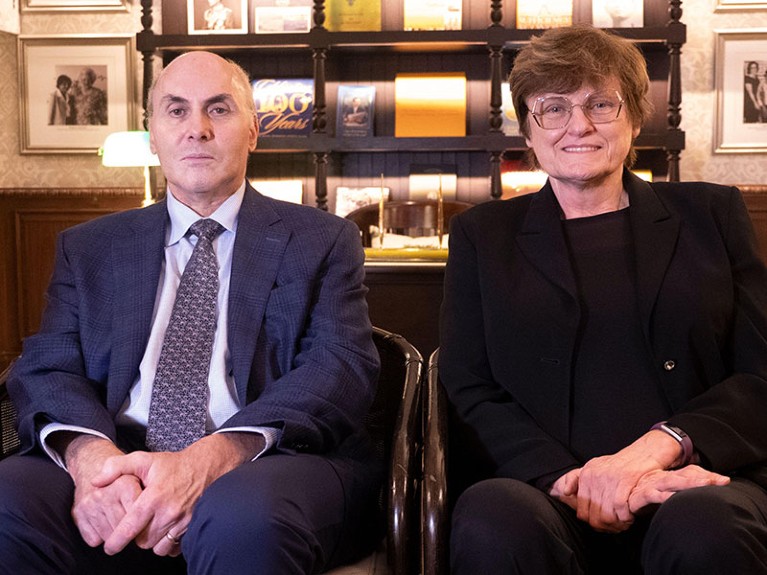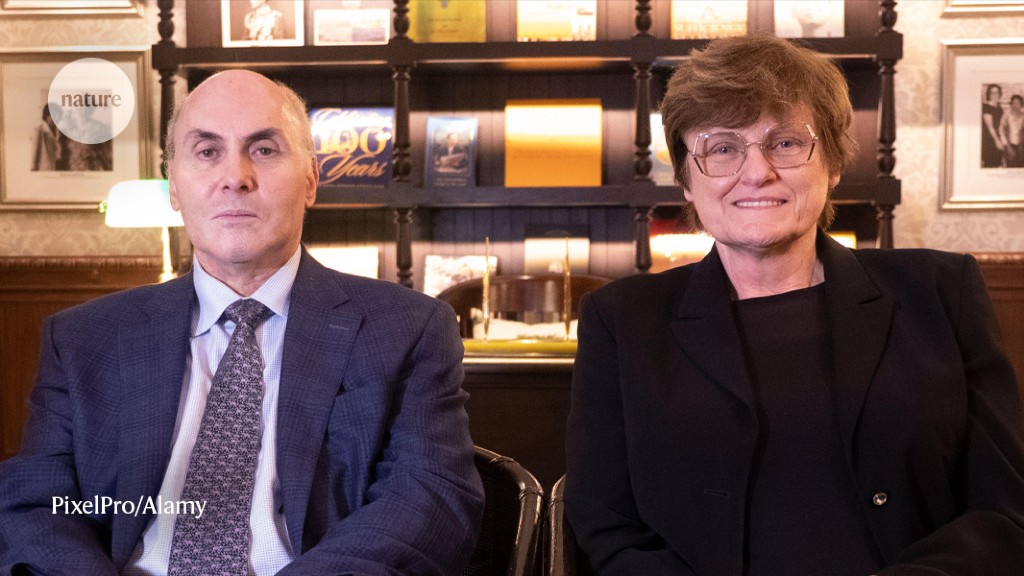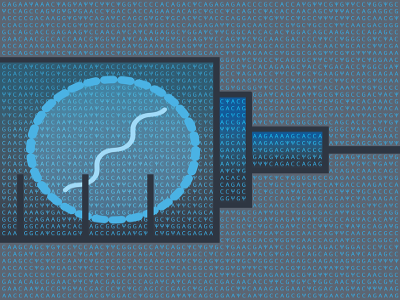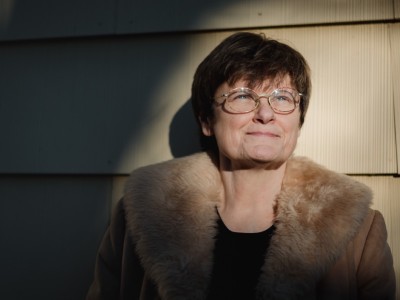[ad_1]

Drew Weissman (left) and Katalin Karikó (proper).Credit score: PixelPro/Alamy
This yr’s Nobel Prize in Physiology or Drugs has been awarded to biochemist Katalin Karikó and immunologist Drew Weissman for discoveries that enabled the improvement of mRNA vaccines towards COVID-19.
The vaccines have been administered greater than 13 billion occasions, saved hundreds of thousands of lives and prevented extreme COVID-19 in hundreds of thousands of individuals, mentioned the Nobel committee.
Karikó, at Szeged College in Hungary, and Weissman, on the College of Pennsylvania in Philadelphia (UPenn), paved the best way for his or her improvement by discovering a approach to ship genetic materials referred to as messenger RNA (mRNA) into cells with out triggering an undesirable immune response.
They are going to every obtain one-half of the 11-million-Swedish-kronor (US$997,000) prize.
Karikó is the thirteenth feminine scientist to win a Nobel Prize in medication or physiology. She was born in Hungary and later moved to america within the Eighties. “Hopefully, this prize will encourage girls and immigrants and the entire younger ones to persevere and be resilient. That is what I hope,” she tells Nature.
A brand new chapter
The COVID-19 vaccines developed by Moderna and the Pfizer–BioNTech collaboration ship mRNA that instructs cells to create SARS-CoV-2’s spike protein, which, in flip, stimulates the physique to generate antibodies and different immune responses.
The tangled historical past of mRNA vaccines
For many years, mRNA vaccines had been thought of unfeasible as a result of injecting mRNA triggered an immune response that instantly broke down the mRNA. Working at UPenn, Karikó and Weissman demonstrated within the mid-2000s that swapping one molecule in mRNA, referred to as uridine, with an identical one referred to as pseudouridine by-passes the cells’ innate immune defences1.
“I’m delighted to see them acknowledged,” says Robin Shattock, a vaccine scientist at Imperial Faculty London, who has labored on mRNA vaccines. “Their contribution was actually elementary within the success of the COVID-19 vaccines, and I believe will underlie RNA expertise for a while to come back.”
“They demonstrated that altering the kind of the RNA nucleotides throughout the vaccine altered the best way by which cells see it,” mentioned John Tregoning, a vaccine immunologist at Imperial Faculty London, in a press assertion for the UK Science Media Centre. “This elevated the quantity of vaccine protein made following the injection of the RNA, successfully growing the effectivity of the vaccination: extra response for much less RNA.”
“This discovery has opened a brand new chapter for medication,” mentioned Nobel committee member Qiang Pan-Hammarström, an immunologist on the Karolinska Institute in Stockholm, at a press convention following the prize announcement. “Funding in long-term primary analysis is essential.”
Vaccine revolution
Different mRNA vaccines, together with these towards influenza, HIV, malaria and Zika, are at the moment in improvement.
“It’s actually like a revolution beginning for the reason that COVID pandemic,” says Rein Verbeke, an mRNA vaccine researcher on the College of Ghent in Belgium. He provides that Karikó and Weissman’s contributions had been important to the vaccines’ success through the pandemic, and past. “Their half was actually essential to the event of this platform.”
A COVID-19 mRNA vaccine containing unmodified RNA, developed by CureVac, primarily based in Tübingen, Germany, was broadly seen as a flop after its mediocre efficiency in medical trials.
COVID advances win US$3-million Breakthrough prizes
One other key element of COVID-19 vaccines was the lipid nanoparticles (LNPs) that encompass the modified RNA and ease its entry into cells. Quite a few scientists contributed to the event of LNPs, says Verbeke, and it might have been good if the Nobel committee had additionally acknowledged their contributions to mRNA vaccines. The modification of mRNA and the event of LNPs “had been the 2 main steps that had been essential to have mRNA vaccines working”, he says.
Many individuals had been concerned in creating LNPs and it might be tough to single out anybody contribution, says Pierre Meulien, who labored on utilizing mRNA to set off immune responses within the Nineties at Transgène, a small biotech agency in Strasbourg, France. Karikó and Weissman “actually created the important thing to success of the entire enterprise round mRNA vaccines”, he provides.
The event of mRNA vaccines and therapeutics is in its infancy, says Shattock. Scientists and biotechnology corporations are busy arising with new functions for mRNA expertise, from most cancers therapies to next-generation COVID-19 vaccines. Many groups are additionally engaged on improved methods of delivering mRNA. “What we see used right now will not be what it is going for use sooner or later,” he says. “We’re at the start of an RNA revolution.”
Though COVID-19 jabs put mRNA vaccines on the map, the expertise’s impression is more likely to attain far and vast, says Karikó. “It’s simply limitless.”
Extra reporting by Katharine Sanderson.
[ad_2]




